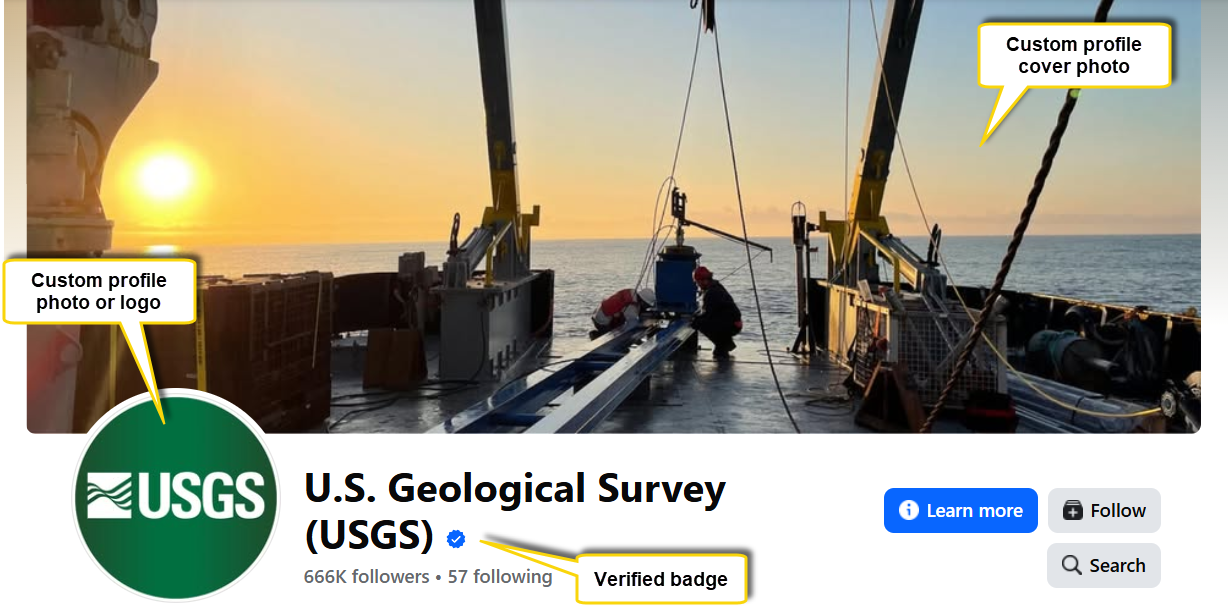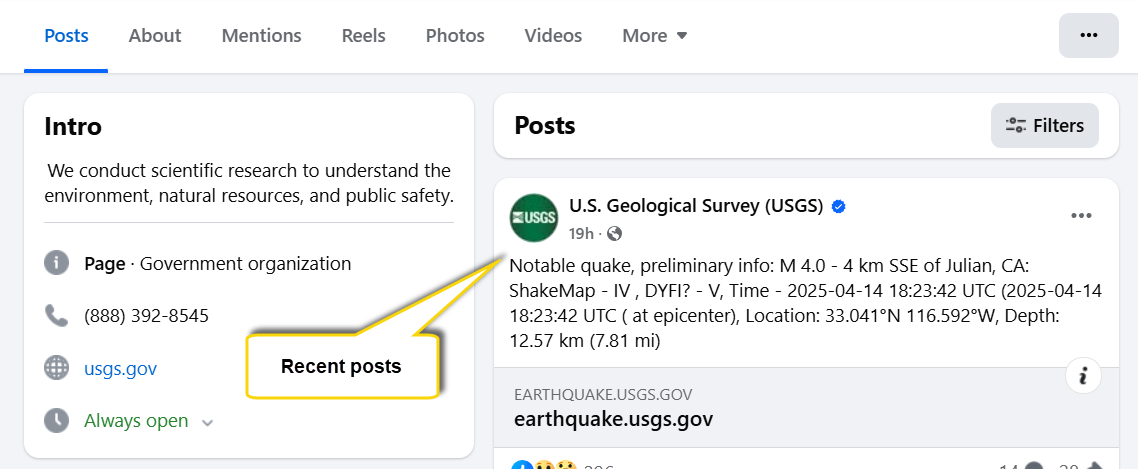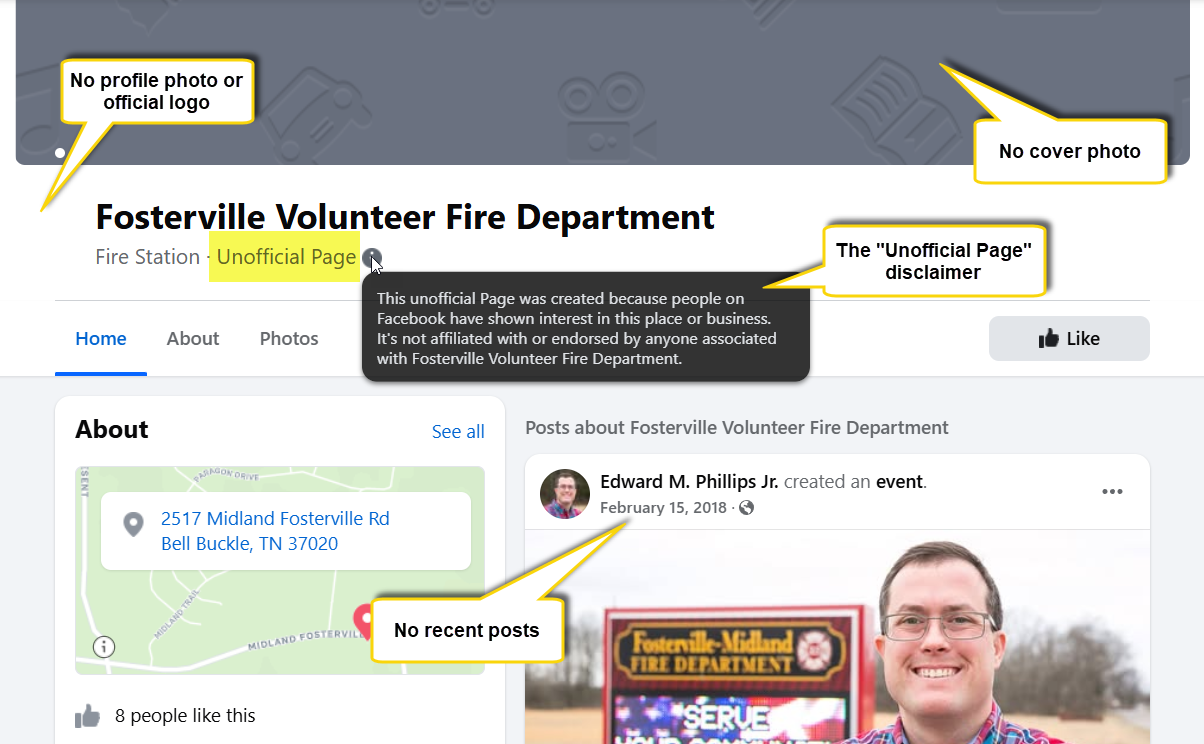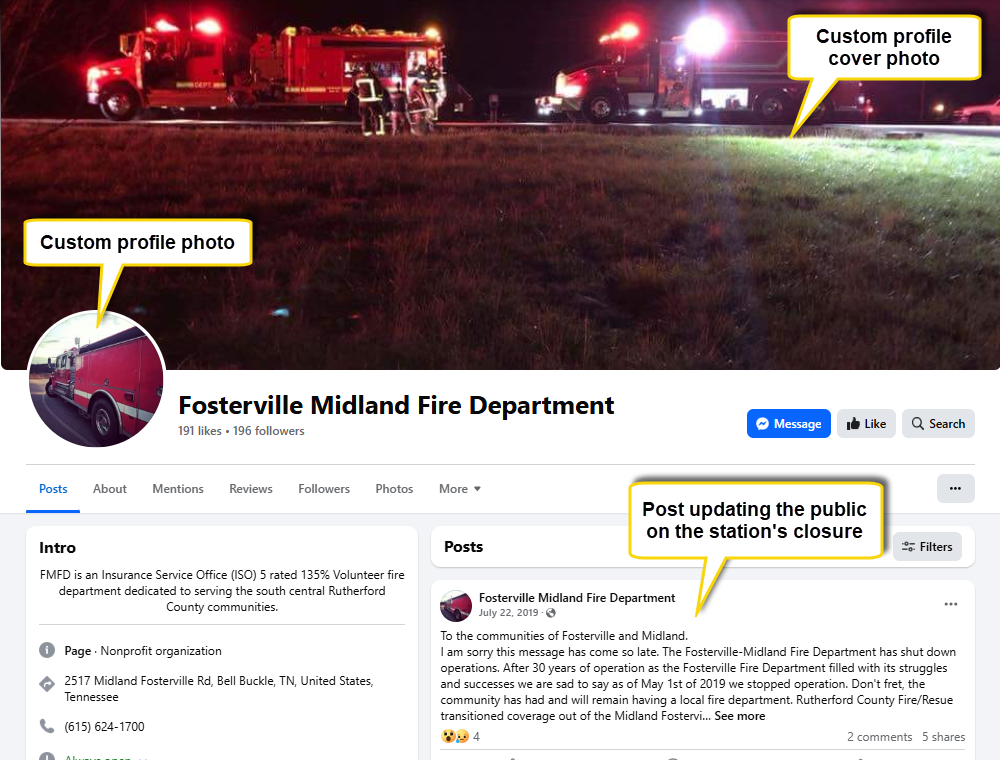Social Media as an Authoritative Source
Many businesses or organizations maintain a social media presence in addition to their official websites. However, there are also businesses which may not have the staff, budget, or infrastructure to maintain an official website, so they rely solely on social media pages to communicate information about the business online.
But does social media count as an authoritative source, and can we trust the information published on social media sites? Well, yes and no!
Many businesses use social media for marketing, and some even use it as their primary presence on the internet. Of the structures that TNMCorps collects, those that are most likely to rely upon social media for distributing information include (but are not limited to) fire stations, city/town halls, ambulance services, and schools (mostly private and/or parochial). Since Facebook is one of the most frequently used social media platforms for businesses, that is what this article will be focusing on. Our guidance, however, can be applied to other social media sites as well.
Social media pages that are authoritative
When considering whether to reference information from a social media site to update points, a key question to ask is: Who authored the page? The answer to this question determines whether the source is considered a primary, secondary, or aggregate/third party source. If the business being mapped regularly maintains a social media page, then that page would be considered a primary authoritative source and can be used to update the point.
Telltale signs that a Facebook page is actively maintained by the entity being mapped include:
- A custom cover photo
- A custom profile photo
- Recent posts
- Verified badge (blue checkmark)


Remember that according to our Authoritative Sources List, a primary source is one whose information is directly provided by the entity being mapped; a secondary source is authored by service recipients or regulators; and an aggregate / third party source is created by entities who comb the web for information and assemble it into their own lists or databases.
Social media pages that aren’t authoritative
Facebook will automatically generate unofficial pages for businesses which may not be “claimed” or maintained by a specific business. This happens when a Facebook user tries to check in to a location or business which doesn’t already maintain their own official page. Even if an official page does exist, duplicates are often still automatically created. You can tell if a Facebook page was automatically created based on the page’s layout and disclaimer.
Telltale signs that a Facebook page is NOT actively maintained by the entity being mapped include:
- No custom cover photo
- No custom profile photo
- No recent posts
- An “Unofficial Page” disclaimer instead of a verified badge


We strongly encourage diligent research and healthy skepticism when consulting any source, especially social media sources. But yes, if a social media page was created and is maintained directly by the business it represents and you’ve found evidence that they regularly update their content and engage with followers, then it can be used as an authoritative source!
If you’re ever unsure about whether or not a source you’ve found can be referenced to update a structure point, feel free to reach out!

